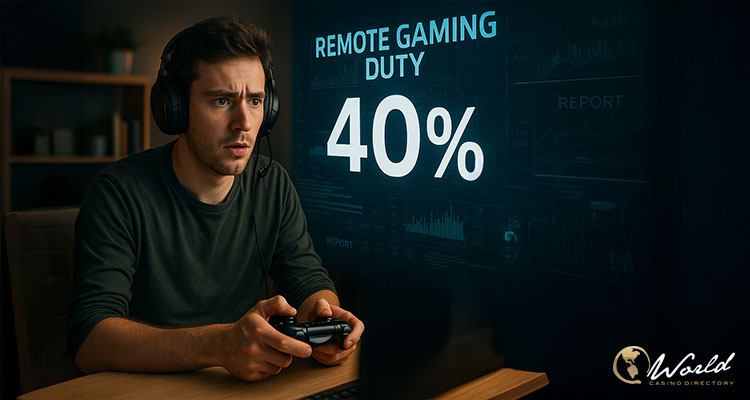The UK gambling sector is preparing for the most dramatic reshaping of its tax environment in years after official documents released in error confirmed sweeping increases affecting online casinos and sports betting operators. Chancellor Rachel Reeves has now formally committed to the changes, which will come into force across 2026 and 2027 and elevate the UK’s remote gambling tax rates to levels far above earlier expectations.
Sharp Tax Rises Reshape Remote Gambling Landscape
According to the early Office for Budget Responsibility (OBR) document, remote gaming duty will be pushed from 21% to 40% beginning in April 2026 — an increase that significantly exceeds the 30% to 35% range many industry observers anticipated. The accidental publication sent UK gambling stocks sharply downward before the official budget presentation took place, with several major operators lowering profit forecasts or cautioning about job losses by the end of the day.
The OBR’s report lays out the government’s revenue expectations and the anticipated behavioural shifts that accompany such steep increases. The measure is forecast to generate £1.1bn in additional revenue by 2029–30, though the OBR also estimates a one-third reduction in overall yield due to lower consumer demand, substitution between products, and operators passing along approximately 90% of added tax costs through higher prices or reduced payouts. These effects, the OBR said, are likely to cut £0.5bn from expected receipts, with a further £0.1bn loss anticipated as operators adjust product offerings to minimise tax liabilities.
From April 2027, a new general betting duty for remote wagering will apply at 25%, up from 15%, although the rate excludes self-service betting terminals, spread betting, pool betting, and horse racing. According to NEXT.io, the government also confirmed that bingo duty — formerly 10% — will be abolished from April, while casino gaming duty bands will remain frozen during 2026–27 before returning to standard RPI uprating.
Reeves argued during her House of Commons address that the tax increases focus on areas associated with greater harm, stating that “remote gambling, remote gaming is associated with the highest levels of harm”. She also noted that the combined gambling tax reforms are projected to raise more than £1bn annually by 2031.
Industry Reaction and Regulatory Concerns Intensify
The budget leak drew immediate criticism from MPs, including the Speaker of the House, who condemned the premature publication. Reeves called the leak “deeply disappointing” and a “serious error,” while the OBR issued an apology, attributing the incident to a “technical error”.
Ahead of the announcement, Gibraltar’s gambling regulator Andrew Lyman warned of significant economic risks if remote gaming duty approached 30%, writing that above this point “the pips will be beyond squeaking and there will be genuine pain”. He added that “once the regulated sector is gone – it’s gone!”, warning of job losses, cost-cutting, and heightened black-market activity.
Industry voices echoed these concerns. The OBR itself noted the likelihood of increased migration to unregulated markets, a view reinforced by Deal Me Out founder Jordan Lea, who said it “is now unquestionable, that we will see vast consumer migration” following what he described as a “defining moment for UK gambling”. Stella David of Entain similarly stressed the risks posed by illicit operators, commenting: “Black market operators are there to take as much cash out of the UK as possible… none of the profits they make come back in tax to the UK Government.”
Think tanks such as the IPPR and SMF had previously encouraged raising duty rates, with some proposals calling for remote gaming tax levels as high as 50%. The Treasury Select Committee also pressed for an approach that reflects the risks associated with online gambling, arguing earlier this month that taxation should align with the growth of harmful betting practices.



